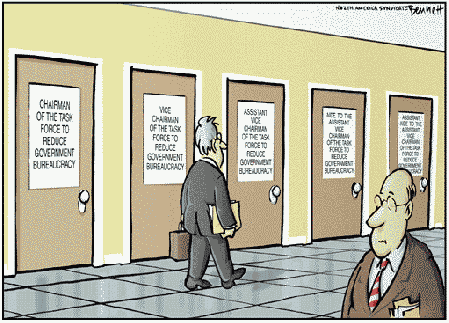Today, the EPA is invading the states and infringing upon the liberties of individual citizens by destroying their private property rights. Our founders would be aghast at such actions by an arm of what is supposed to be our “federal” government.
The Constitution and the federal government were established not by “We the People” of one unified body, but rather by “We the People” of the several states, and as such the “federal” government is to be subject to the sovereignty of the people of those several states (space does not permit an exegesis of the 9th and 10th amendments to show that the usage of the terms “states” and “people” refer to one and the same group, just in different capacities).
The people of the several states agreed between themselves to grant certain and limited powers to the federal government, as was affirmed by James Madison in Federalist #45:
“The powers delegated by the proposed Constitution to the federal government are few and defined. Those which are to remain in the State governments are numerous and indefinite.”
Clearly, the people of the several states acting in their sovereign capacity never conferred upon the “federal” government the authority to regulate their private property, especially as exemplified in the tyranny of the EPA. However, the nail in the EPA’s coffin can be found in statements contained within the state constitutions of these original thirteen states. They clearly demonstrate the intent of their citizens as to the exclusivity of their rights when it comes to matters within their respective states. Herewith are just a few examples:
New Hampshire: “The people of this state have the sole and exclusive right of governing themselves as a free, sovereign, and independent state; and do, and forever hereafter shall, exercise and enjoy every power, jurisdiction, and right, pertaining thereto, which is not, or may not hereafter be, by them expressly delegated to the United States of America in congress assembled.”
Massachusetts: “The people of this commonwealth have the sole and exclusive right of governing themselves, as a free, sovereign, and independent state; and do, and forever hereafter shall, exercise and enjoy every power, jurisdiction, and right, which is not, or may not hereafter, be by them expressly delegated to the United States of America in Congress assembled.”
Maryland: “That the People of this State have the sole and exclusive right of regulating the internal government and police thereof, as a free, sovereign and independent State.”
North Carolina: “The people of this State have the inherent, sole, and exclusive right of regulating the internal government and police thereof,”
One has to ask the “federal” government and its agencies such as the EPA, what parts of ” The people of this state have the sole and exclusive right of governing themselves as a free, sovereign, and independent state,” or ” The people of this State have the inherent, sole, and exclusive right of regulating the internal government and police thereof” do they not understand?
Article IV, Section 4 of the US Constitution guarantees to each state a republican form of government. It is clear from the examples of the state constitutions quoted above as well as Madison’s assertion in the Federalist Papers that the actions of the EPA violate this guarantee and these state constitutions. It destroys the representative form of the states’ governments and seeks to nullify these affirmations contained within their respective constitutions. It is therefore past time that governors and state legislators stand up and reassert their state and federally guaranteed constitutional powers and put the nail in the EPA’s (and its sibling agencies such as the Bureau of Land Management and Department of Agriculture) coffin once and for all.
-November 27, 2015








